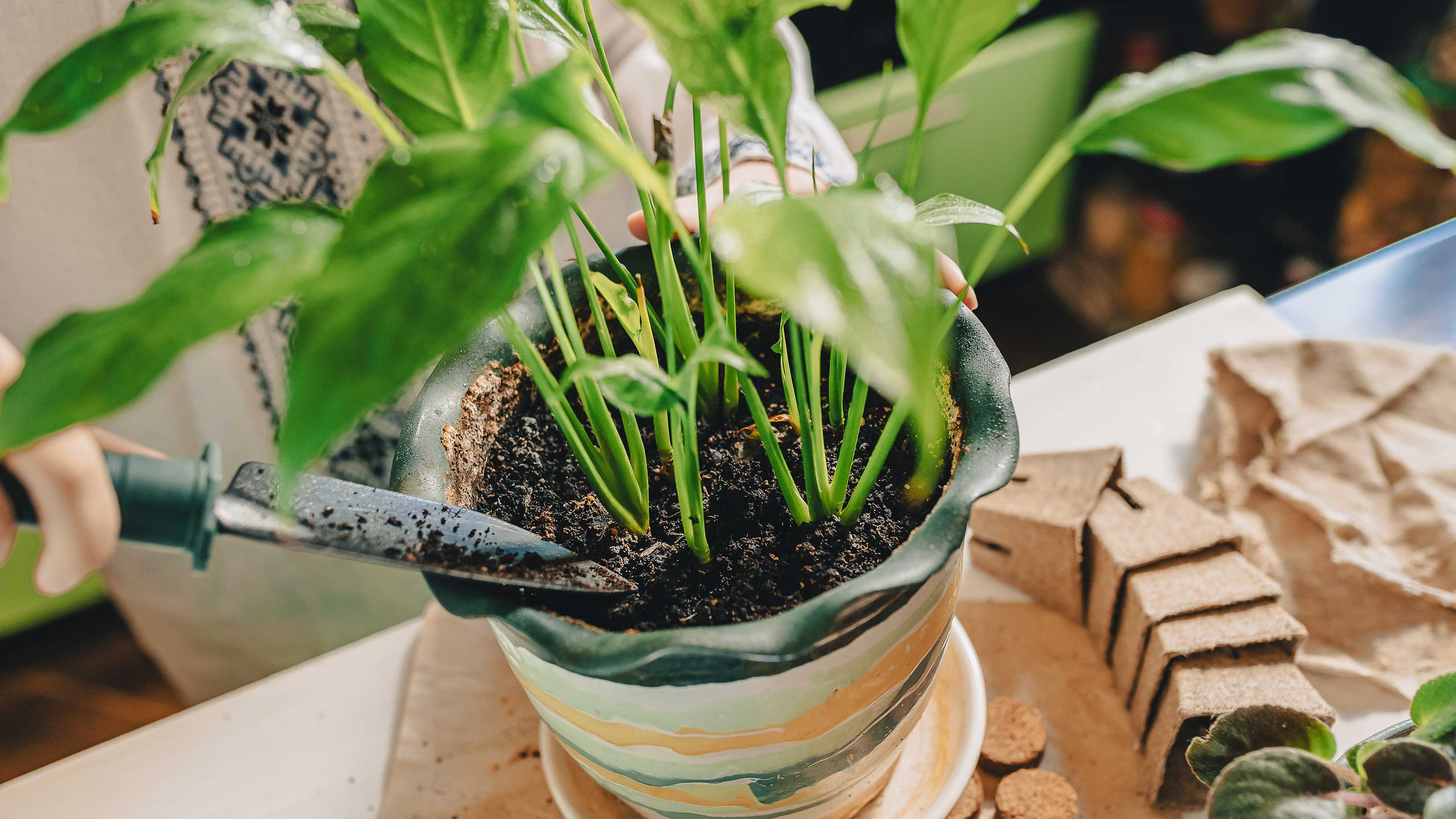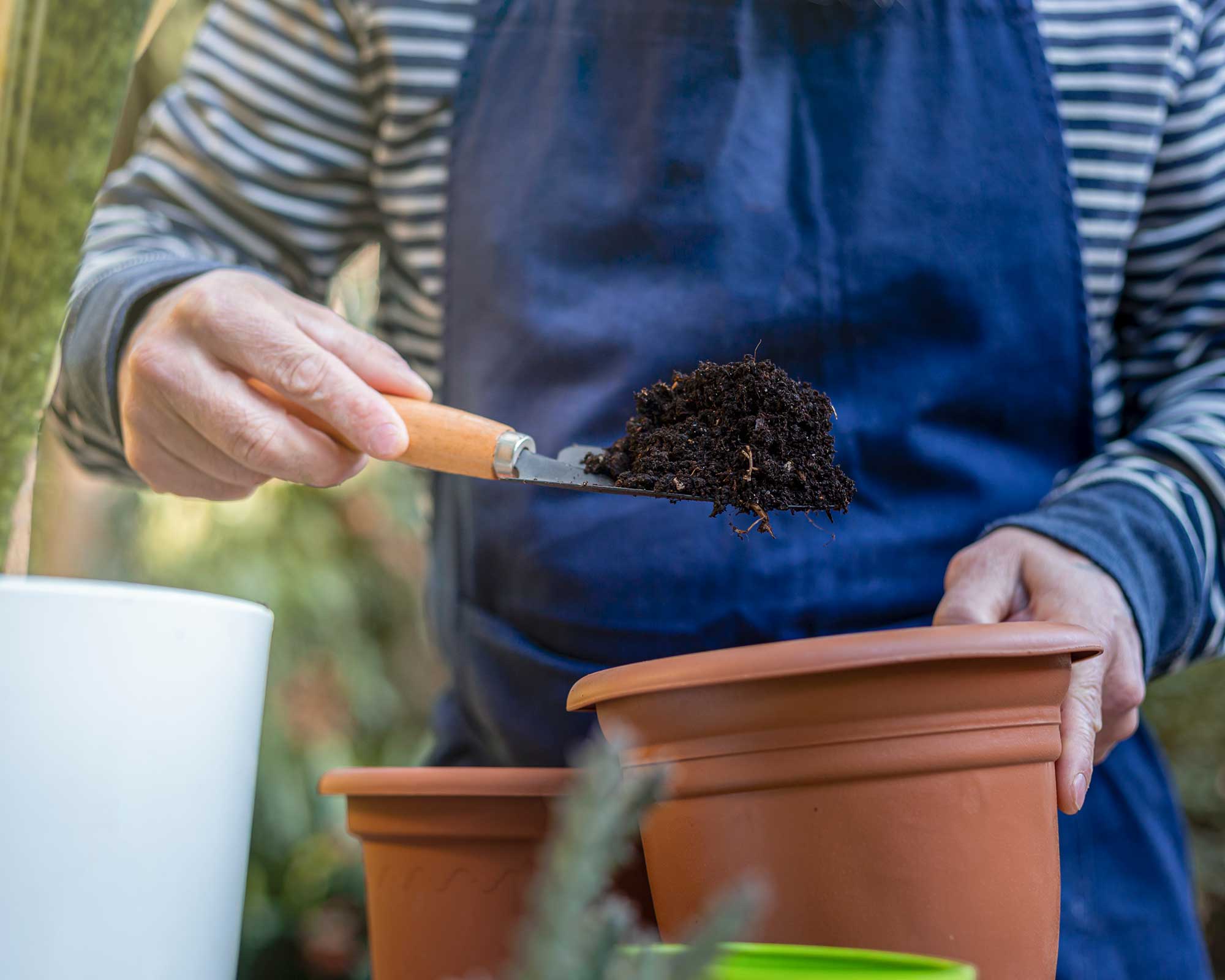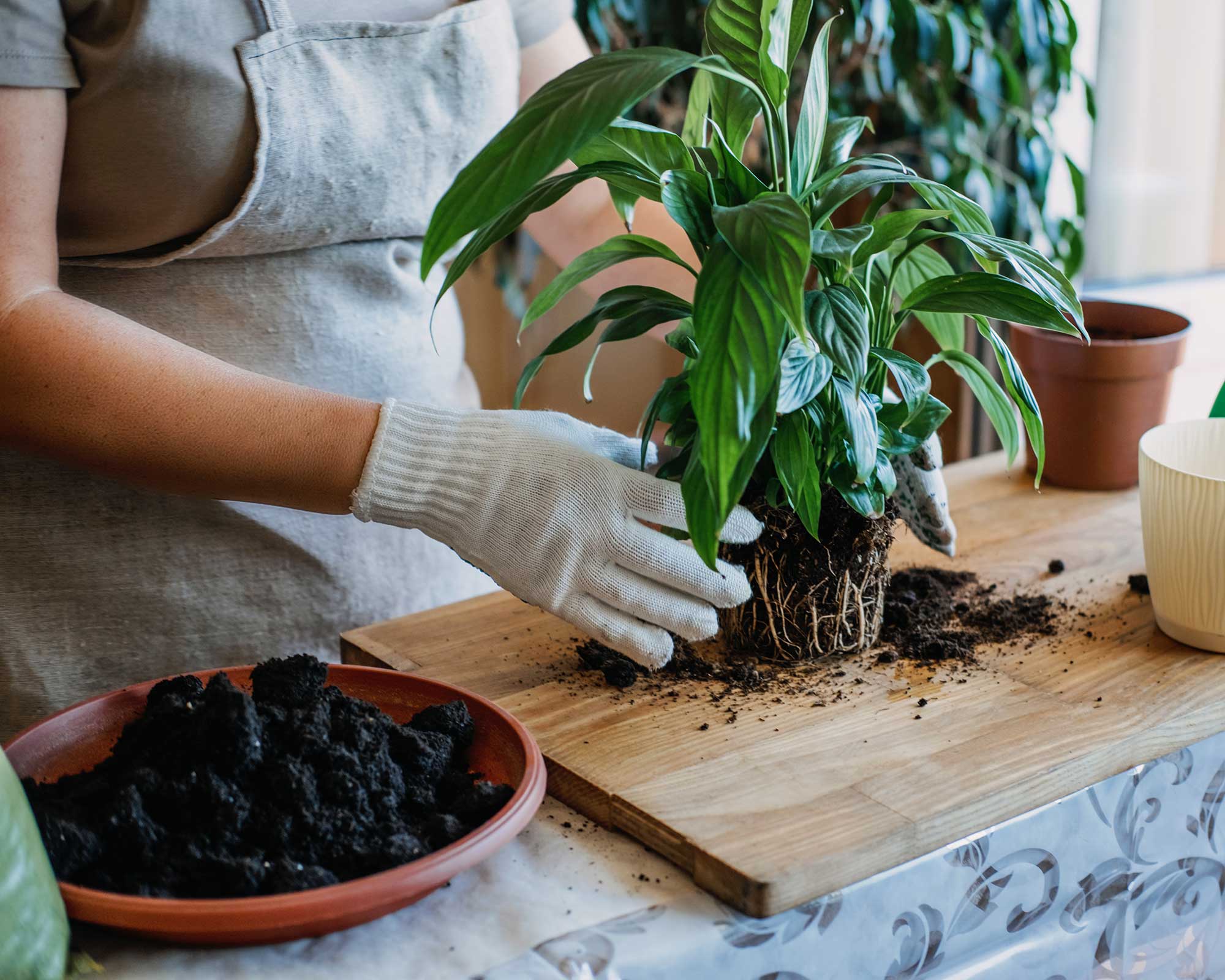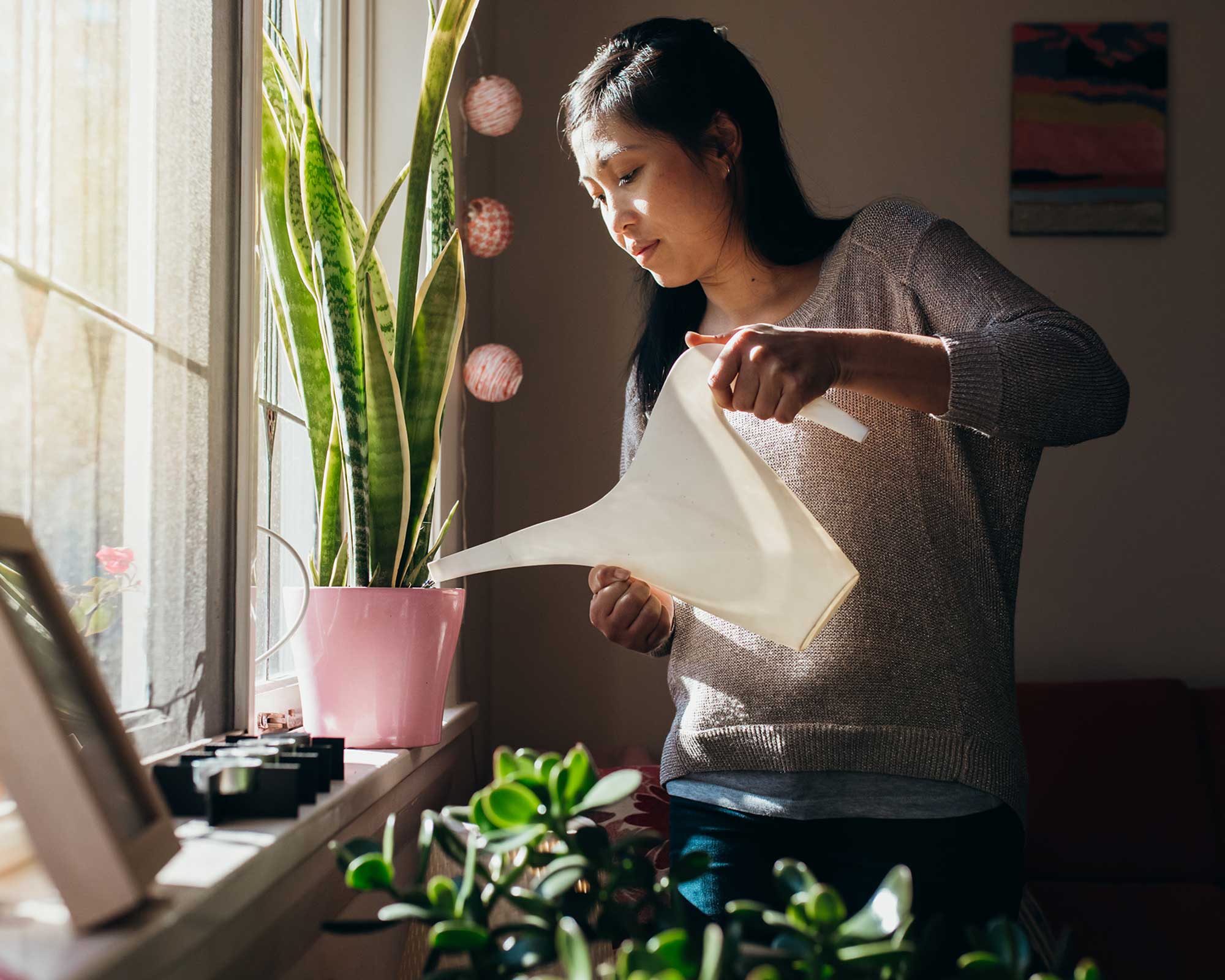How to get rid of soil mites: quick tips to treat an indoor influx of these bugs
Find out how to get rid of soil mites in your potting compost with our advice


If you have a thriving indoor garden, there may come a time when you want to know how to get rid of soil mites.
Unlike aphids and many other pests, it's important to note that these tiny creatures are not harmful to plants. In fact, as we explain below, they are beneficial. However, soil mites can be a little off-putting when crawling across compost en masse, so if you'd rather do without, these tips will help to keep them at bay.
What are soil mites?
Soil mites are related to spiders and ticks. There are many different types, but they tend to be either brown or white in color.
As their name suggests, they live in plant soil. At just a few millimeters in length, you're unlikely to notice them at all in your backyard. But, you may spot them crawling around your indoor garden.

Should you get rid of soil mites?
Although soil mites are similar in looks to spider mites, they are much less harmful to plants.
Soil mites feed on rotting organic matter and turn it into nutrients. In other words, they help the decomposition process and actually improve the quality of the soil for your plants. According to Gardening Mentor, they make the structure of the soil better, too, and can prey on unwanted organisms. For these reasons, many gardeners choose to leave soil mites alone rather than try to eradicate them.
However, others would rather remove them to keep their best indoor plants as aesthetically pleasing as possible. There is also the small chance of these mites carrying diseases and parasites, such as tapeworms.

How do you get rid of soil mites?
If you'd rather not have mites crawling across your houseplants' compost, there are a few things you can do to stop them.
For starters, cleaning up your potted plants by removing decaying matter, such as dropped leaves, can help prevent infestations.
You can also use an insecticidal soap (available from Amazon). These solutions can help get rid of thrips and many other pests, too. Natural deterrents such as garlic or cinnamon can also help. Joe Bagley of UK House Plants suggests diluting cinnamon first with water before administering it to your plants.
Joe also recommends sprinkling a thin layer of Diatomaceous Earth (DE) over the top of the soil – a chalky powder that kills many types of small pests. Sophie Thorogood, from the technical team at eco-friendly pest-control brand Green Protect, agrees. She explains how it will eradicate the mites, as the abrasive material makes them unable to hold moisture inside their bodies.
'Also, try to avoid overwatering houseplants,' says Sophie. 'This will encourage the growth of mites if they’re already present and may lead to other infestations such as fungus gnats.'
In some cases, it may be simpler to re-pot your houseplant altogether. Gently shake off existing soil from the roots before planting it up into a clean pot full of fresh compost. The old soil can be discarded into your outdoor compost heap or spread around your garden borders.

How do you prevent soil mites from entering your home?
To prevent soil mites from coming into your home in the first place, inspect new plants before buying them from a garden center.
Also, although making your own compost outdoors is a great way to save money in the garden, it's best to avoid using it for your indoor plants – chances are it already has mites dwelling in it.

The garden was always a big part of Holly's life growing up, as was the surrounding New Forest where she lived. Her appreciation for the great outdoors has only grown since then. She's been an allotment keeper, a professional gardener, and a botanical illustrator – plants are her passion.
